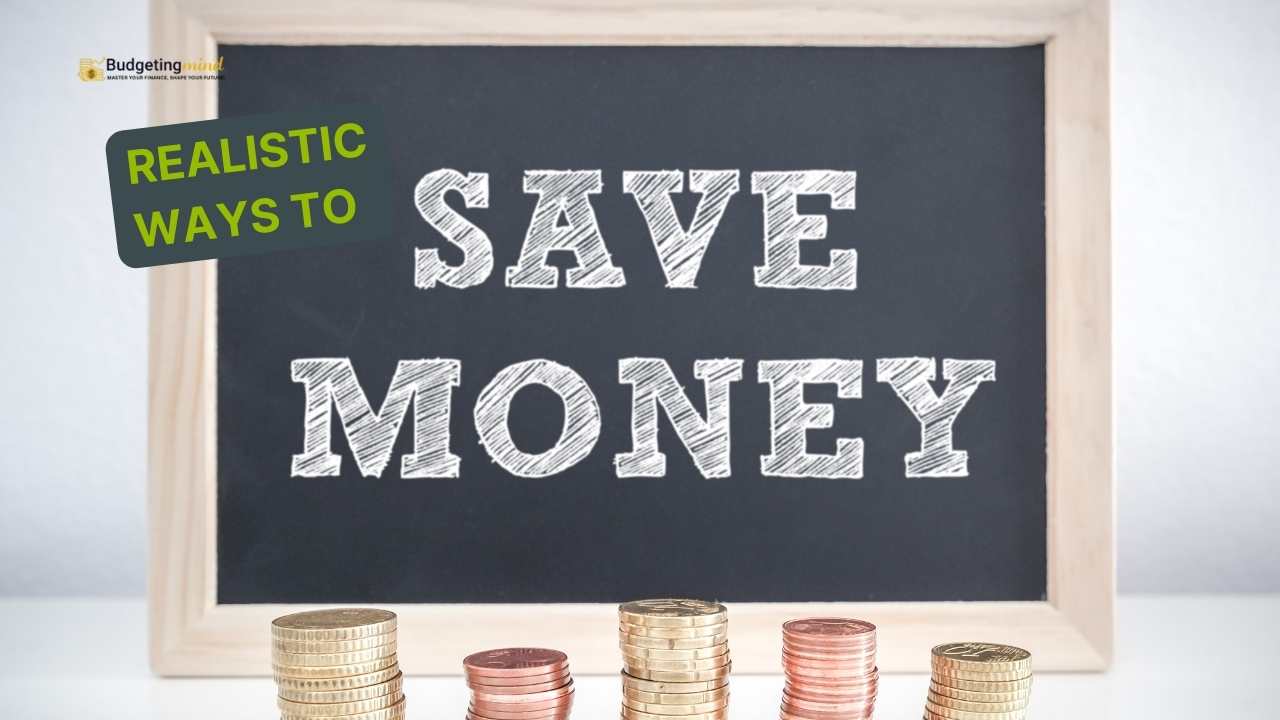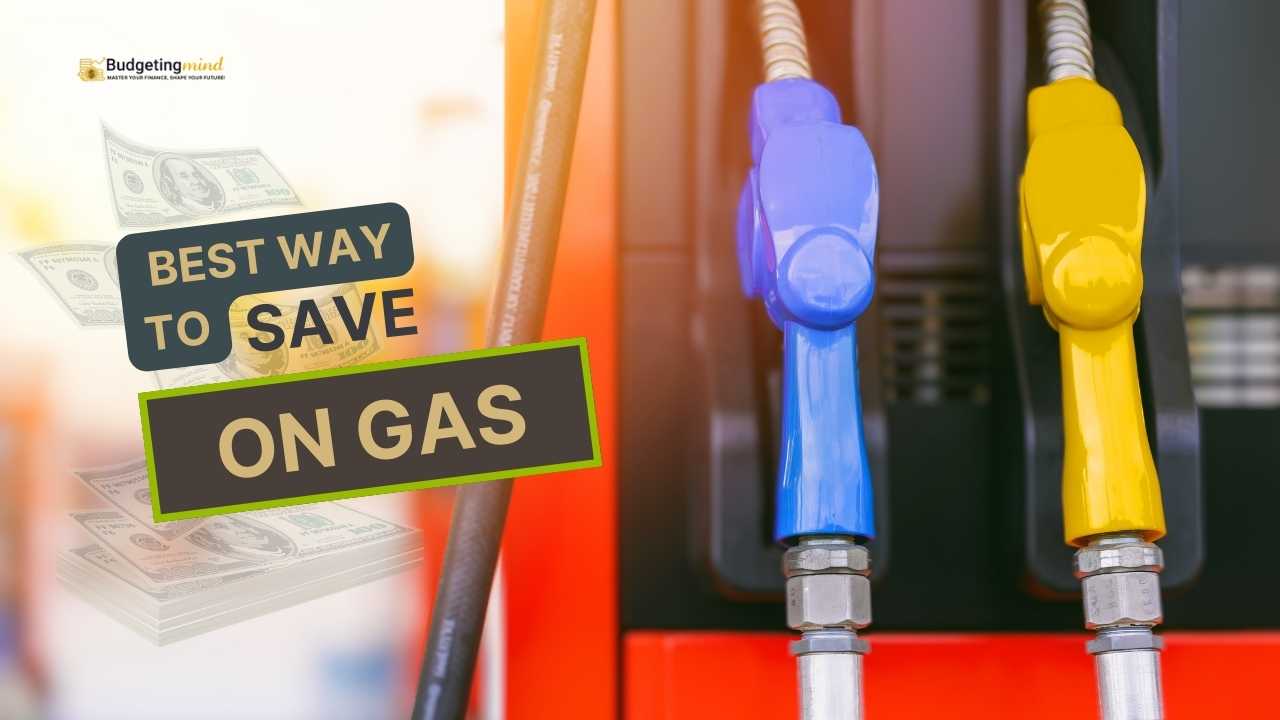Balancing saving money and paying off debt is a financial challenge. Saving helps build a financial safety net for emergencies or future goals, while paying off your debt reduces financial burdens and interest expenses.
Finding the right balance depends on your financial situation; it’s often wise to prioritize high-interest debt while still setting aside some funds for emergency savings.
What is the most effective way to save money and pay off debt? The most effective way to save money and pay off debt is by creating a budget. Start by tracking your expenses and identifying areas to cut back. Allocate a portion of your income to debt payments while setting aside some for savings. Stick to this plan consistently, and over time, you’ll make progress in reducing debt while building financial security.
- The Importance Of Creating A Budget To Saving Money And Paying Off Debt: Savings Plan
- Ways To Increase Your Income To Accelerate Debt Payoff
- How To Prioritize Your Debts Based On Interest Rates
- Strategies For Cutting Down On Unnecessary Expenses
- Saving Money Through Frugal Living Tips And Techniques
- The Benefits Of Setting Financial Goals And Tracking Progress: Savings Goal
- Utilizing Debt Consolidation Or Refinancing Options
- The Power Of Negotiating With Creditors To Lower Interest Rates Or Settle Debts
- Building An Emergency Fund For Unexpected Expenses: Savings Account
- Tips For Staying Motivated And Disciplined While Paying Off Debt
- FAQ About Saving Money And Paying Off Debt
- Final Thought 💭
The Importance Of Creating A Budget To Saving Money And Paying Off Debt: Savings Plan
Creating a budget is important for both saving money and paying off debt. A budget helps you gain control over your finances by tracking income and expenses.
It allows you to allocate a portion of your earnings toward debt payments while setting aside savings. This structured approach ensures you make consistent progress in reducing debt while building a financial safety net.
By sticking to a budget, you can achieve your financial goals and secure a more stable future.
Debt Avalanche Strategy For Saving Money
The debt avalanche strategy is a smart way to save lots of money while paying off debt. It involves tackling high-interest debts first, which saves you more money in interest over time.
By prioritizing these costly debts, you can become debt-free quicker and ultimately free up more funds for saving and achieving your financial goals.
Ways To Increase Your Income To Accelerate Debt Payoff
There are several ways to boost your income and make your debt payoff. You can explore part-time work, freelancing, or selling unused items.
Seeking a raise at your current job or searching for higher-paying opportunities is also effective.
By directing this additional income toward your debts, you can reduce them more rapidly, bringing you closer to financial freedom. Increasing your earnings provides a valuable path to accelerating your debt payoff journey.
Financial Planning For Savings
Financial planning for savings is about setting goals, making a budget, and saving money regularly. It also means finding ways to reduce spending and increase your income.
This kind of planning helps you build savings for emergencies and future needs, making your financial future more secure.
How To Prioritize Your Debts Based On Interest Rates
Prioritizing your debts based on interest rates is a smart financial strategy. Start by listing all your debts and their respective interest rates. Then, focus on paying off the debts with the highest interest rates first, as they cost you the most over time.
While doing this, continue making minimum payments on other debts. This approach saves you money in the long run and accelerates your journey toward becoming debt-free, providing financial relief and peace of mind.
Strategies For Cutting Down On Unnecessary Expenses
There are effective strategies to trim unnecessary expenses in your budget. Start by tracking your spending to identify areas where you can cut back.
Consider reducing dining out, subscription services, or impulse purchases. Create a monthly budget or weekly saving schedule to allocate specific amounts to different categories, and stick to it.
Shopping with a list, buying generic brands, Stop spending on outside food by cooking at home and looking for discounts can also help you save. By implementing these strategies, you can free up funds for savings and debt reduction, leading to better financial stability.

Cutting Expenses To Save Money
The strategy of cutting expenses by food shopping on a budget is one of the most important than any strategy, especially in times of inflation it’s a key way to save money. Start by identifying unnecessary spending, like unused subscriptions. Create a budget to allocate funds for essentials.
Shop smart by looking for discounts and buying generic brands.
By trimming expenses, you can free up cash for savings, helping you achieve financial goals.
Saving Money Through Frugal Living Tips And Techniques
Saving money through frugal living involves adopting practical tips and techniques. Begin by creating a budget, allowing you to track expenses and allocate funds wisely.
Cut back on discretionary spending, like dining out or entertainment, and look for cost-effective alternatives.
Energy-saving habits to reduce utility bills. Shop smartly by comparing prices and using coupons.
By doing these frugal practices into your lifestyle, you can increase your savings and achieve financial security over time.
The Benefits Of Setting Financial Goals And Tracking Progress: Savings Goal
Setting financial goals and tracking your progress can offer numerous benefits. Clear goals provide direction and motivation for managing your finances effectively.
By breaking down large objectives into smaller, achievable steps, you can stay focused and make consistent progress.
Regularly monitoring your financial situation helps you identify areas for improvement and adjust your strategies as needed.
This proactive approach ultimately leads to better financial health, reduced stress, and a greater sense of control over your money.
Investment For Financial Goals Setting
Investing is a valuable strategy for achieving financial goals. By allocating money to investments such as stocks, bonds, or real estate, you have the potential to grow your wealth over time.
It’s important to align your investments with your specific goals, whether it’s saving for retirement, a home, or education.
Properly managed investments can provide the opportunity for long-term financial security and help you reach your objectives.
Developing A Debt Repayment Plan That Works For You
To start, create a detailed list of all your debts and note down the interest rates for each one.
Decide whether you’ll focus on the highest interest debt first (debt avalanche method) or the smallest balance (debt snowball method). Set a realistic monthly payment goal and stick to it.
Adjust your budget to allocate more funds to debt repayment. Consistency and discipline are key to successfully reducing your debt and achieving financial freedom.

Budgeting For Debt Repayment
Budgeting for debt repayment is essential to regain control of your finances. Start by assessing your income and expenses, then create a realistic budget.
Allocate a portion of your income to debt payments, focusing on high-interest debts first. Cut discretionary spending and consider additional income sources to boost your repayment efforts.
Sticking to a well-planned budget can accelerate your journey towards becoming debt-free.

Utilizing Debt Consolidation Or Refinancing Options
Debt consolidation or refinancing options can simplify your financial situation. Debt consolidation involves merging multiple debts into one, often with a lower interest rate, making repayment more manageable.
Refinancing allows you to replace an existing loan with a new one, typically at a better rate. These strategies can reduce monthly payments and save money on interest, making it easier to pay off debt and achieve your financial goals.
Debt Consolidation Options
Debt consolidation offers various options to streamline your debts into a single, more manageable payment. Two common methods include personal loans and balance transfer credit card debt.
Personal loans can combine high-interest debts into one lower-rate loan, simplifying repayment.
Balance transfer cards allow you to move credit card balances to a card with a low or 0% introductory APR, helping you save on interest.
Careful consideration of these choices can help you regain control of your finances and reduce debt stress.

The Power Of Negotiating With Creditors To Lower Interest Rates Or Settle Debts
Negotiating with creditors can be a powerful way to manage your debt. You can try to lower interest rates on existing debts, making them more affordable to repay.
In some cases, negotiating debt settlements may be possible, allowing you to pay a reduced amount to settle the debt.
Effective communication and demonstrating a commitment to resolving your debt can lead to favorable agreements, helping you regain financial stability and peace of mind.
Debt Repayment Calculator To Settle Lower Interest Rates
A debt repayment calculator is a useful tool to calculate payments when settling for lower interest rates. Input the original debt amount, the reduced interest rate, and the repayment term.
It will provide you with the new monthly payment amount, allowing you to see how this change affects your overall debt repayment plan, making it easier to manage your finances.

Building An Emergency Fund For Unexpected Expenses: Savings Account
This fund serves as a safety net for unexpected expenses like medical bills or car bills like car repair or car rent bills.
To begin, put aside a bit of money from each paycheck until you have enough saved up to cover your living expenses for three to six months.
Having this financial safeguard provides peace of mind, helping you navigate unexpected challenges without relying on debt or draining your savings.
Now, as an example let’s talk about planning for a big move, like moving to another state. When you’re gearing up for such a change, it’s not just about having enough money saved.
You’ll also need to consider important details like getting the right auto insurance plan for your new location.
This ensures that you’re covered on the road in your new state, providing an additional layer of security as you embark on this exciting journey.
So, as you budget for your move and save money from each paycheck, factor in the importance of updating and securing the right auto insurance to keep you protected in your new adventure.
Emergency Fund Building Programs
Emergency fund building programs offer guidance and strategies to help individuals save for unexpected expenses. These programs typically include advice on budgeting, setting savings goals, and creating a dedicated fund.
They encourage regular contributions to ensure financial security during unexpected circumstances, making it easier for people to handle emergencies without sinking into debt.
This not only helps you build a financial cushion but also puts you on the path towards achieving big saving goals like buying your dream car or your homeownership dreams.
Tips For Staying Motivated And Disciplined While Paying Off Debt
Saving money, and maintaining motivation and discipline during debt repayment can be tough for anyone especially if you are a single mom or facing a disability.

It’s hard because many other things need money, like bills and groceries but it’s important for you.
Set clear, achievable goals and reward yourself when you reach milestones.Keep track of your progress to see how far you’ve come.
Consider finding a support system, like a friend or financial advisor, to help you stay accountable.
Remind yourself regularly of the benefits of being debt-free, such as financial freedom and reduced stress. These strategies can help you stay on track and successfully eliminate your debts.
FAQ About Saving Money And Paying Off Debt
Is It Smart To Save Money While Paying Off Debt?
Saving money while paying off debt can be smart, especially for emergencies. Start with a small emergency fund, then focus on a debt repayment strategy. This balance can provide financial security and prevent new debt in case unexpected expenses arise.
What Are The 3 Biggest Strategies For Paying Down Debt?
The three major strategies for paying down debt are budgeting, prioritizing high-interest debts, and increasing income. Budgeting helps allocate funds while focusing on high-interest debts saves on interest, and boosting income accelerates repayment.
How Do I Get Out Of Debt And Start Saving?
To escape debt and start building up your savings, create a budget, cut unnecessary expenses, and prioritize debt payments. Increase income if possible, and allocate a portion to savings after paying off high-interest debts.
Which Is Better Debt Or Saving?
Deciding between debt and saving depends on your financial goals. Saving is essential for future needs while managing and reducing debt is crucial for financial security. The choice depends on your individual circumstances and objectives.
Final Thought 💭
Managing your finances wisely is key to achieving financial security and meeting your goals. Budgeting, saving money and paying off debt are essential steps in this journey.
Whether it’s building an emergency fund, investing, or negotiating with creditors, there are various tools and strategies available to help you succeed.
Staying motivated and disciplined throughout the process is important. By taking control of your finances and making informed decisions, you can work towards a more stable and prosperous future.




Leave a Reply